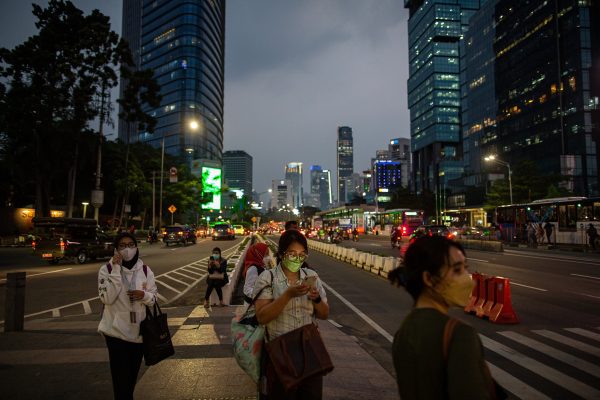When some of the men were informed of the level of support among their peers in a randomised trial, those in the treatment group were more likely to forgo a gift card and instead sign their wives up for a job-matching mobile application. Months later, their wives were more likely to have applied and been interviewed for a job.
In 2022, a similar experiment was conducted in Indonesia. The initial results suggest a similar effect. While providing practical information for implementing interventions, these studies also highlight the underlying dynamics that keep women from the workforce, with social norms emerging as the elephant in the room.
Besides being a worthy goal in its own right, gender equity contributes to a country’s prosperity. Estimates by the International Labour Organization suggest a 25 per cent reduction in the global gender participation gap could lead to a 3.6 per cent boost in global GDP.
The World Economic Forum’s Global Gender Gap Index — a higher value of which indicates more gender equity — shows a modest positive correlation in its rankings between gender equity and economic development. But the relationship between gender equity and economic development is likely two-way, with economic development also facilitating increases in gender equity.
Interestingly, almost all the countries with a per capita income above US$35,000 have Gender Gap Index scores above 0.7 (with Japan, South Korea, Brunei and Middle Eastern oil states being notable exceptions). At higher incomes, the trend line is clearer but at incomes below this point, there is a wide variation in scores. This suggests factors beyond economic development play an important role in achieving gender equity.
Indonesia’s Gender Gap Index score is 0.697 — roughly in the middle of the distribution of all scores and in the mid-range of scores given its level of development. Comparing Indonesia to its peer countries, its score is one of the highest among Muslim-majority countries. In Southeast Asia, Indonesia has less gender inequality than Malaysia and Brunei, similar gender inequality to Cambodia, Vietnam and Thailand and more gender inequality than East Timor, Laos, Singapore and the Philippines.
But the score is comprised of four domains. Indonesia’s strong performance in three of these — educational attainment, health and survival, and political empowerment — obscures its weak performance in economic participation because of its low female labour force participation rate. The Philippines has a similar level of female labour force participation but performs better on the gender wage gap, women’s share of earned income, and the percentage of legislators, senior officials and managers who are women.
Indonesia’s female labour-force participation rate has remained largely unchanged at just above or below 50 per cent since 1990. While measuring labour force participation can be sensitive to the framing of survey questions, the Indonesian Labour Force Survey is likely to capture formal and informal work undertaken by women. For example, it defines someone as working if they have undertaken at least one hour of work in the last week, done any activity to obtain income and includes unpaid work and assisting with activities in family businesses and farms.
There are several reasons for Indonesia’s low female labour force participation. Marriage and childbirth lower women’s participation from the supply side, while inflexible workplace policies and discrimination may lower demand. Other aspects of Indonesia’s economic transition also have an effect. The shift away from an agrarian economy towards an industrial one has reduced female participation as women are more likely to work on family farms than in the city. At the same time, changing social norms may have lifted rates of participation, balancing out the effects of the industrial transition.
The often-prescribed solutions to low female participation include flexible work, provision of childcare and paternity leave. While important, these do not address the elephant in the room — social norms.
In the 2022 study, nearly a quarter of Indonesian men stated that the main reason they may not support women working was that women’s role is to care for their children. The 2018 World Values Survey found that over three-quarters of Indonesians agreed with the statement: ‘men should have more right to a job than women’.
It is not just people’s values, but also their expectations regarding others’ values that influence behaviour. An online survey suggests that respondents may be concerned about their mother’s and mother-in-law’s opinions on women working outside of the home. This is despite World Values Survey data that suggests that this cohort of older women is supportive of younger women working.
Social norms vary greatly across Indonesia, with its rich diversity of cultures, languages and religions. In some provinces where more conservative forms of Islam are practised, such as West Java and Aceh, female labour force participation is lower than the national average. Shifting social norms is critical to increasing participation. There is little information on how best to achieve this, although public information campaigns appear promising. Studying this area is crucial because getting women into work supports economic growth and leads to a more equitable and just society.
Lisa Cameron is the James Riady Chair in Asian Economics and Business and a Professorial Fellow at the Melbourne Institute of Applied Economic and Social Research, University of Melbourne.
This article is based on a paper written for the Sadli Lecture, a collaboration between ANU Indonesia Project and Universitas Indonesia. The full paper will be published in the August edition of the Bulletin for Indonesian Economic Studies.

